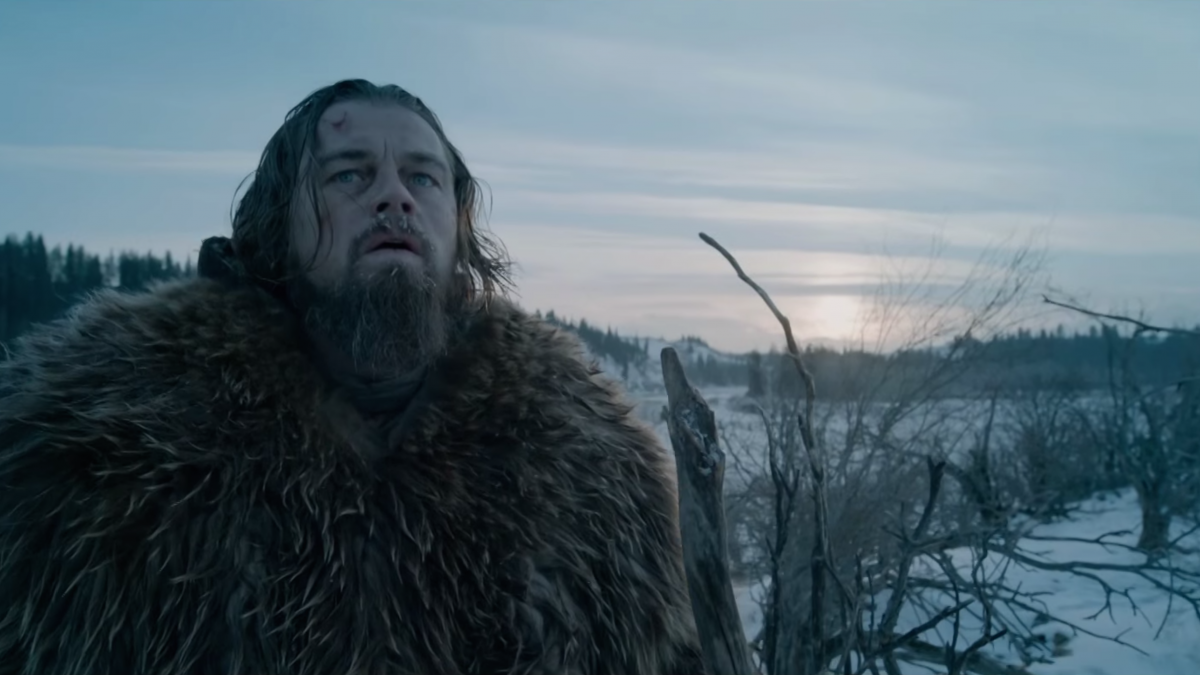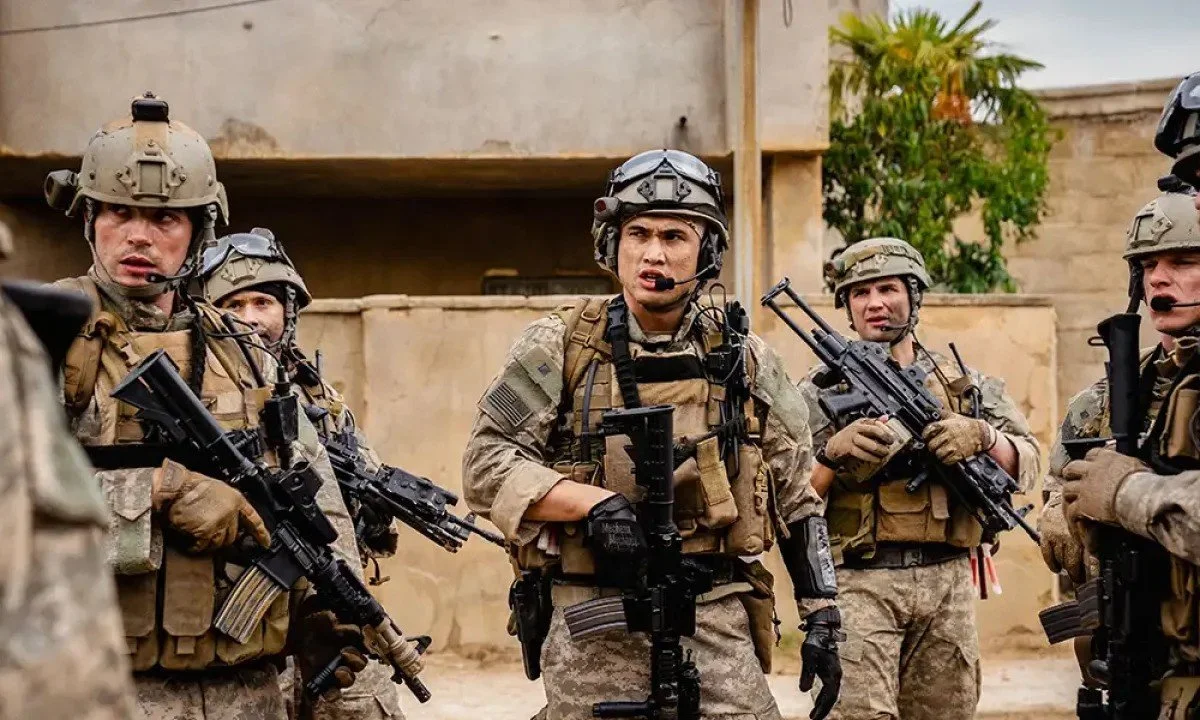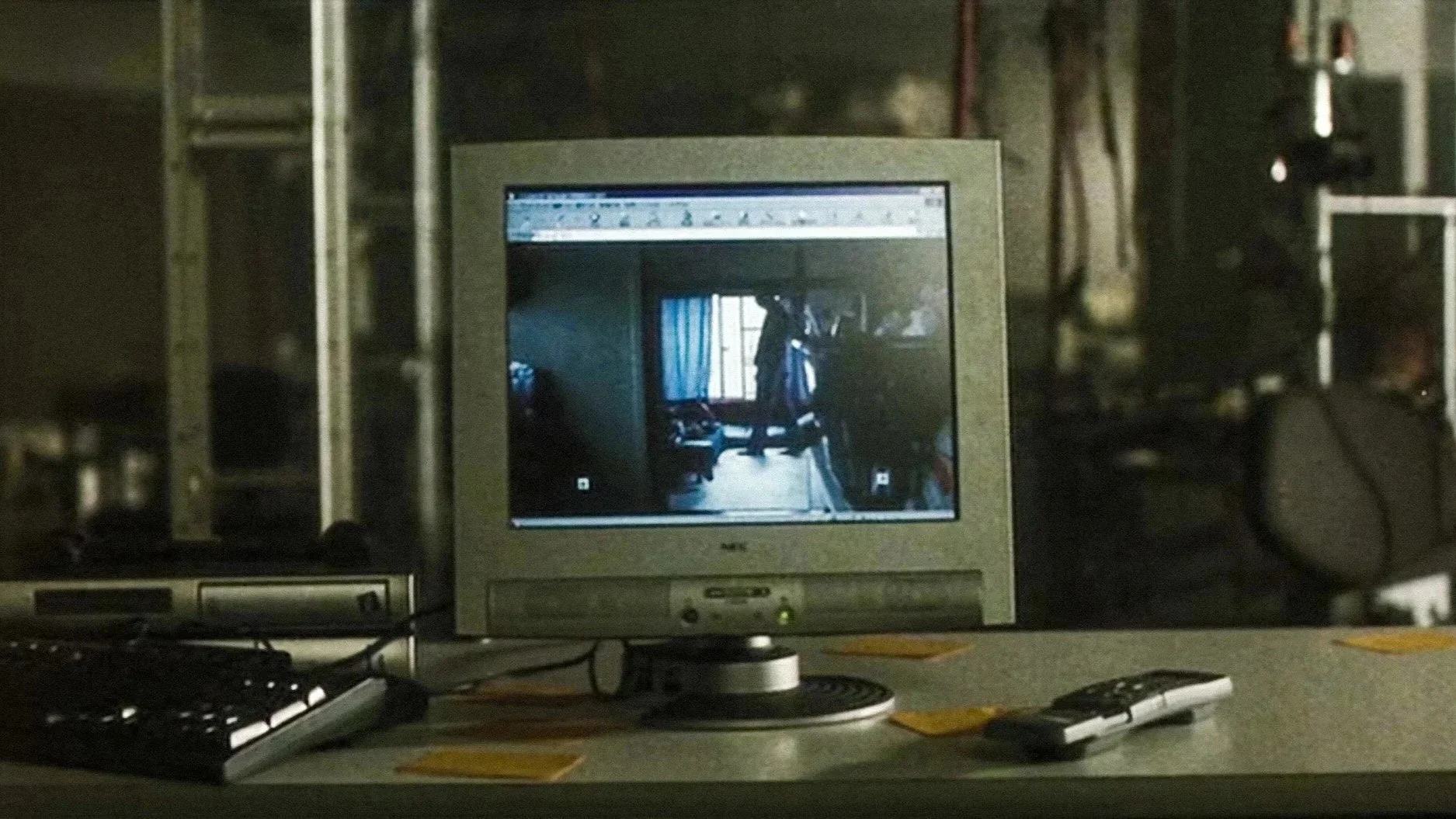Table Talk: The Revenant (2015)
Direction, Acting, Cinematography: Mixed feelings
Anton: The Revenant is at turns beautiful and horrible to behold, and I’m struggling with my own similarly mixed critical reactions to the film.
Aren: It’s both beautiful and ugly. It’s transcendent and grimey. It’s kind of great but also terrible. In short, it’s a mixed bag.
Anton: Birdman left me similarly impressed and annoyed. I admired Michael Keaton’s performance and the film’s strange humour, but many of the supposedly-profound moments were actually just conventional thematics performed big and loud, and so many of the artistic flourishes screamed out their own significance (sometimes, even literally). Take the scene with Emma Stone freaking out (which I chose as one of 2014’s worst movie moments). Birdman wasn’t profound at all, but you get the sense that director Alejandro G. Iñárritu thought it was.
The Revenant is filled with similarly big attempts at profundity. Iñárritu seems to see the story of Hugh Glass’s struggle for survival as a tale of transcendence through suffering, but, honestly, what does the film say that is significant? What is the nature of Glass’s transcendence? In the end, Glass mutters something about giving revenge to the Creator, but he’s just stabbed Fitzgerald several times and then he lets the man float downstream to his doom. It’s a little late to hold back, don’t you think? And the brief stand-off with the Arikara Native American tribe (the white fur trappers call them the “Ree”) results in not so much a new understanding but rather recompense for helping the chief’s abducted daughter.
Aren: In terms of a revenge narrative, Iñárritu sends a very mixed message. On the one hand, it has Glass relent from the killing blow of Fitzgerald. But as you point out, it’s not like he just lets Fitzgerald walk away. He’s already chopped off a few of his fingers and stabbed him several times, and he floats him down the river so the Ree chieftain can finish the job and scalp him. If the chieftain hadn’t finished the job, Fitzgerald would’ve died from Glass’s wounds. So it’s not like Glass is actually practicing mercy in any meaningful sense. Where is the transcendence?
As well, Iñárritu makes it very clear that Glass’s desire for revenge on Fitzgerald for killing his son is the main reason he’s able to get up out of that shallow grave and return to life, so to speak. If Hawk hadn’t been killed, it’s unlikely this version of Glass would have recovered. So I don’t understand the notion that the film can be condemning revenge when it links Glass’s survival to his bloodlust for revenge. Iñárritu has never been good with clarifying themes. With The Revenant it’s no different.
Anton: The performances are at least very good. That said, I do think Leonardo DiCaprio and Tom Hardy are getting so much attention more for the degree of their performances than the quality. They’re good, but each has been better elsewhere. Leo gave a better “all out” performance in The Wolf of Wall Street, partly because he did more than grunt and screech in that film, and Hardy’s weird-voiced villain Fitzgerald, with all his tics, is almost a character type for Hardy now. He gives a speech at one point (about God being a squirrel) and the camera is jammed right in his face. It’s the kind of rambling yet thematically poignant tale that’s almost required for unmotivated sinister characters like Fitzgerald in movies.
Aren: The film is very capably performed. It must have been a nightmare to shoot, spending all that time in freezing water and in animal furs and being held captive by the insane demands of your egotistical director. If Leonardo DiCaprio does end up finally winning his Oscar for his role as Hugh Glass, I won’t be surprised, but I’ll be genuinely perplexed as to why the Academy chose this role to celebrate him, but not any number of his past (better) performances. It’s not that DiCaprio is not good in The Revenant. He’s very good and his performance is admirably physical. He does a lot with few lines and with repetitive actions. It’s just that this is not a film that takes advantage of the breadth of DiCaprio’s strengths as an actor.
Anton: I feel like he’s going to win because it’s so physical. The Academy is notorious for taking any sort of physical test (weight loss or gain, gruelling shoots) as a sign of great acting.
Aren: DiCaprio is good at suffering. We’ve seen this before in Inception and Shutter Island in particular. And there’s a coiled rage to him that simmers beneath his outward beauty. His performance in The Departed shows him holding back physical outbursts at every turn. But his performance as Hugh Glass also buries all of his charisma. His charm. DiCaprio should’ve won an Oscar for Titanic as it encapsulates everything appealing about him as an actor. Not only is it one of the most effortlessly charismatic performances ever put on screen, but he also sells the hell out of conventional material. Him and Kate Winslet make their classical romance feel immediate and powerful.
Anton: I always disliked Jack, but my adolescent dislike for Leo is another story. I think we were all just jealous.
Aren: He’s also better in The Wolf of Wall Street, where genuine menace, evil even, lurks beneath the charismatic and raucous exterior. He’s allowed to play many facets, as opposed to an individual who’s essentially a distillation of one simple concept.
Anton: Glass’s relationship with his half-Pawnee son (played by Forrest Goodluck) is the emotional core of the story, but neither are given much to do with it.
Aren: I actually thought Tom Hardy was the best part of the movie. Not only does Fitzgerald get the most character development, but there’s also something undeniably appealing about him. He’s a deliciously nasty villain. Hardy also makes physical and vocal particularity look so easy and lived in. You mention that his style of tic-filled performances has essentially become a type, and it has, but it’s also remarkably effective. For an actor with such a distinctive physical presence, he disappears into his characters. Unlike Leo, who is always essentially playing a version of Leonardo DiCaprio, with a shifting balance between angry and charming, Tom Hardy is always playing some different kind of detailed weirdo.
Anton: He’s always doing croaky voices though! And how does Fitzgerald develop? I found his motivations murky yet static: he’s basically just evil, selfish, and hates Native Americans. I thought it would have been more interesting if they played up the fact that leaving Glass might have been the smart thing to do.
If nothing else in my opinion of the film is certain, this is: cinematographer Emmanuel Lubezki is a hero. Here he continues his cinematic enterprise, building on the use of natural lighting and colour schemes he began in The Tree of Life, and continuing the long takes of Gravity and Birdman, but for different ends. My only complaint is, please, less shots of people’s faces close up from a low angle. There’s grotesquery mixed in with the sublimity of his camera.
Aren: Lubezki has a fetish for wide lenses, which distort the human face when in close-up. It’s probably his greatest weakness. But he’s still a great cinematographer. He’s become one of those film artists whose voice is as distinct as that of his directors’.
If Roger Deakins is the current master of the studio method of cinematography, which thrives off crisp images and clearly delineated lighting patterns, than Lubezki is the master of natural light and more transcendental visual styles. There are some remarkable shots here. And unlike in Birdman, we actually get some wide establishing shots to offset the constant close-ups. The Revenant is not a claustrophobic film. And there’s some interesting stuff being done here with colour palettes, namely through the combination of blood and snow.
Anton: And yet, quite effectively, many of those expansive shots of landscapes are just as oppressive for the viewer as the close-ups of suffering. I have no reservations about saying that the cinematography of this film is stunning.
Hugh Glass and a Film “inspired by true events”: Storytelling and Realism
Anton: The Revenant does not tell a good story, though, in spite of its incredible historical source material. The story of Hugh Glass being mauled by a bear only to survive and drag himself back to camp is such a simple story, that it should be clear and forceful, but here it’s muddled and stretched.
Why emphasize the revenge narrative over the survival story? Does one need revenge to survive? The real Hugh Glass seems to have wanted revenge on the two men who left him for dead, but he forgave the one and gave up on Fitzgerald who had joined the army.
Likewise, Glass had no indigenous child to avenge. Why add this half-realized effort at revisionary western thematics, when other clichéd shots of old, wisened chiefs seem like something out of a John Wayne western? The flashbacks to Glass’s wife and child and his visions of his wife and glimmers of perhaps the next life play like cribs from Gladiator.
Aren: I think the whole handling of the Arikara (Ree) chieftain, Elk Dog (Duane Howard), is pretty terrible. The filmmakers add the character to the film in a bid to simultaneously gratify progressive revisionism (they have to have some sort of sympathetic indigenous character in a modern western), while also to have him parallel Glass’s story, as he too is driven by revenge and the loss of a child. But he’s no more than a functionary in this narrative: he merely drives plot and fulfills some ambiguous thematic goals. He’s not a real character. And in terms of the way he’s presented in the film, he comes across as a fool. We’re not even sure that his daughter was really taken from him for the first half of the film, and he spends the vast majority of the film tracking the wrong band of foreigners, as if he cannot distinguish the French from the Americans. He speaks a few lines about the foreigners taking their land, but at this juncture in American history, he would’ve still occupied his ancestral land in the Dakotas and he would’ve been constantly beating back the expanse of the American frontier. Instead of being a convincing historical character, he’s just vocalizing our modern conceptions of colonialism.
As well, the way Iñárritu blocks him in the frame, and the way the story uses him, I half expected the character to shed a single tear over his losses, like the Native American in that classic, ludicrous “Keep America Beautiful” ad.
Anton: Yeah, I thought that the white fur trappers were essentially raiding the Native lands at this point in time in the west (and hence their fear and desire to be gone quickly) and not actually annexing or taking over the lands yet. In any case, I would love to see a solid western about the conflict between the Native American tribes and the American expansionists in the early 19th century, but I don’t understand why that story was sort of appended to Glass’s survival story.
I have greater concern with other aspects of the film’s historical eye though. The realism the long takes and natural lighting work so hard to convey were defeated, for me at least, by the film’s strange disregard for the actualities of survival during the winter on the western frontier (or even in modern day Saskatchewan). In spite of the detailed costumes and wonderful location shooting, which do add a lot of authenticity, this survival tale is actually fairly unconcerned with what it would take for Hugh Glass to make it back from a bear mauling alive. We see him grotesquely eating some things—old bone marrow, a fish. At certain points I started in agitation though: “Get out of that frozen water! You’re going to get hypothermia! How will you start a fire? Seriously, just get the hell out of the frozen wind and water!”
Aren: Glass’s whole recovery is pretty impossible, at least as depicted here. Early on his leg seems straight-up broken but then soon after he has no difficulty running across snowy fields. And the complete ignoring of hypothermia and other basic frontier facts—things that Glass would have certainly been aware of—take you out of the realism of the whole endeavour. Why try to make the costumes so realistic, but then have the characters ignore historical and natural reality?
Anton: I found the geography similarly muddled. It starts with spring melt and green forests of old moss, and then gives way to frozen wastes and wintry mountains. Is this the back and forth of early spring in the west? Glass was actually in the Dakota region, if I’m not mistaken. This film showcases the Rockies of Alberta. It’s gorgeous to behold, but at times it’s unclear why people seem to be crisscrossing mountains so frequently, only to arrive at plains and then back again to mountains.
I’d be confused if the simple answer for all my concerns about the real elements was— because it looks so wonderful! That’s the reason for the geography we get, and all the situations characters put themselves in (standing in frozen water or trying to light a fire on a wind swept plain).
Aren: I think the movie is meant to take place in the Dakotas, but it’s never very clear. You’re right in that the real motivation is not historical reality but aesthetic appeal. If the geography or the costumes or the act of survival looks good, it stays, regardless of authenticity.
Anton: Robert Ebert once said that The Last of the Mohicans, for all its publicity about real tomahawks and feathers, is an old fashioned adventure. I appreciate, however, that in that film, the hero must give up his beloved at one point since the gunpowder is all wet, and there’s simply no way to resist the enemy. So he jumps through a waterfall to escape and plans his rescue. It’s a nice blend of real obstacles and swashbuckling heroics. And I think The Last of the Mohicans actually achieves that mix of historical detail and authenticity and good ol’ adventure and heroics.
The Revenant is best treated as a tall tale, not a survival tale “inspired by true events.” I simply couldn’t believe that a man could be mauled by a bear and heal that quickly, then seemingly very soon ride a horse and undergo a half-dozen or so similarly death-defying travails, like sleeping off the cold of a winter river ride, or riding a horse off a cliff only to crawl inside the carcass when it gets cold. Outlandish feats are fine, but don’t try to sell it to me as historical or grittily realistic.
But this is Iñárritu, and so daring showmanship covers over the ragged seams. The Revenant is brilliant if you don’t look to closely or think about it too hard.
The Incredible Ego of Iñárritu
Aren: I’ll give The Revenant this: it didn’t make me want to punch Alejandro González Iñárritu in the face during its runtime. Birdman made me want to do so. I’m much more neutral on The Revenant. People can like it all they want. People can hate it all they want. The only thing I won’t stand for is someone calling it a masterpiece. A master would never draw such naked attention to himself or draw out such a simple tale to monstrous lengths. Masterpieces are monumental works of imagination, profound and beautiful and they shake you to your core. For such an intense film, The Revenant is distant. The wonderful costumes and locations and the dedicated performances from the actors all attempt to ground you in the gritty realism of the moment, but then Iñárritu keeps pulling you out of the moment by breaking the fourth wall with some wildly artificial flourishes, as if he’s reminding you that you’re watching a movie and that he’s the one directing it.
The most egregious examples of this are Glass’s breath fogging the camera or Glass staring down the camera lens in the final shot. Iñárritu can’t help but insert himself into the film, as if to remind you that he’s the brilliant director behind this brilliant film of brilliant ideas and images. You just want to tell the guy to get the hell out of there, to rely on his strong actors and his eye for spectacle and Emmanuel Lubezki cinematography. He has talent but no tact. He needs to get out of his own way and let the story do the heavy lifting for once.
Anton: You know what, I actually thought to myself when watching the film that I liked the fogging on the lense, which then transitions to a foggy landscape, and then to Fitzgerald smoking. I liked that flourish, and it suggests the weird connection between the hero and the villain—essentially, the thread of life that Fitzgerald left Glass with.
However, such self-reflexive moments do strike me as being at cross purposes with the film’s other attempt to convey an authentic vision of survival on the western frontier. Iñárritu wants his film to do everything, and ends up defeating his own grandiose attempts.
Aren: The Revenant might be a step up from Birdman. It’s genuinely riveting at moments, like during the opening attack on the trappers’ camp, but it’s also muddled, narratively, thematically, even in a basic artistic sense.
Sadly, like with Birdman, the only unifying idea of the film seems to be that the director is brilliant, and the film’s main function is to showcase this brilliance. It’s another exercise in artistic machismo.



The Great Escape is a hugely entertaining landmark in the prison camp and action team genres.